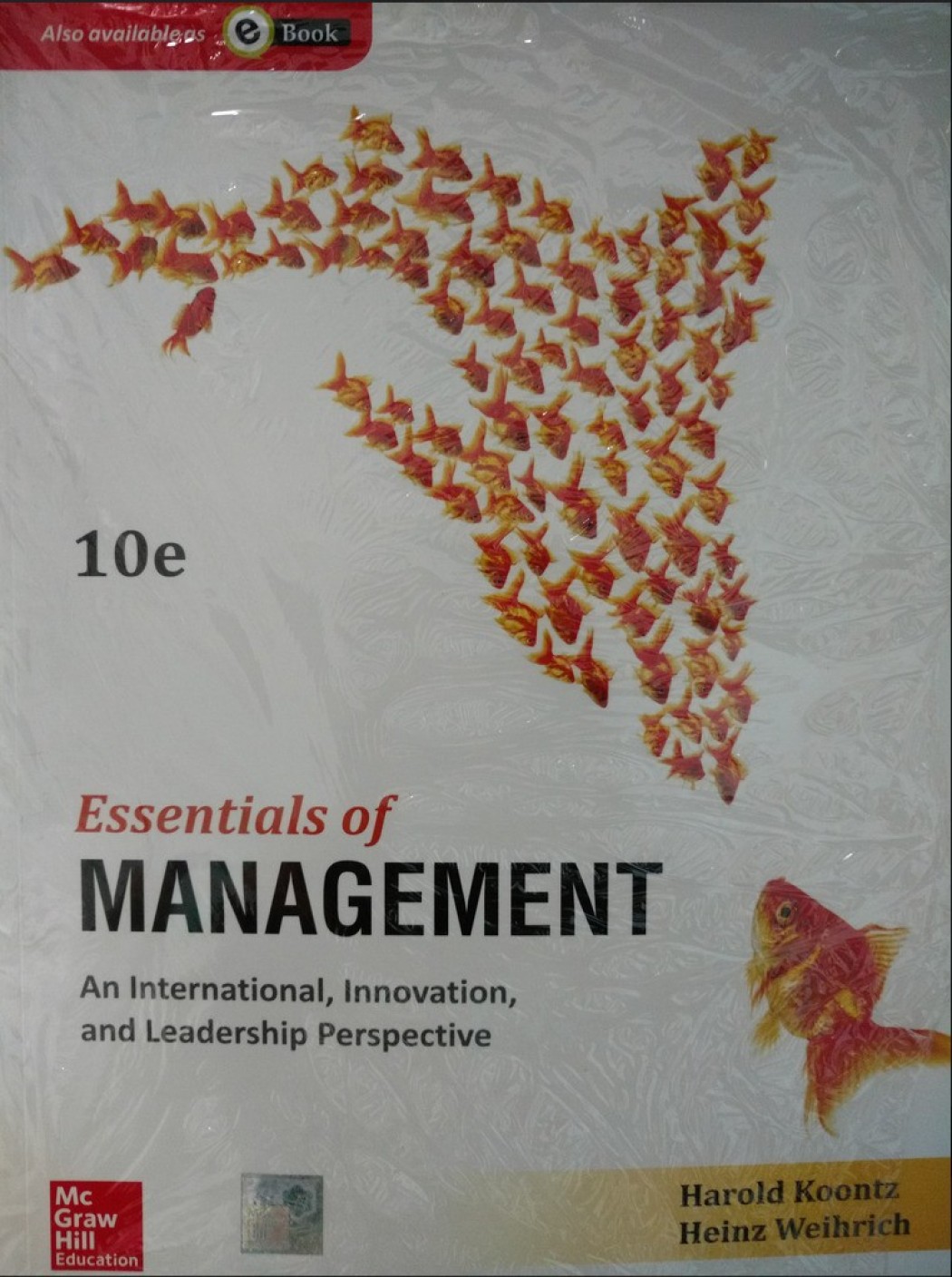Harold Koontz Heinz Weihrich Essentials Of Management Pdf

GO essentials of management harold koontz free ebooks The best key search essentials of management harold pdf, filesonic, megaupload, hotfile, r Writing. Harold Koontz, Heinz Weihrich. McGraw-Hill, 1990 – Management – 530 pages. Harold Koontz (1909-1984), was a consultant for US's largest business organizations. He co-authored the book Principles of Management with Cyril J. O'Donnell which has sold around two million copies and has been translated into 15 languages.
It wasn't until he returned to the church that he wrote a series of three motets intended for use within the orthodoxy: 'The Lord's Prayer' (1926), 'Credo' (1932), and 'Ave Maria' (1934). • (listen) Stravinsky was raised in the Russian Orthodox Church, but in his young adult life, his religious practices were 'put on hold' so to speak. Stravinsky composed all three works in Slavic text, then fifteen years later, after moving to the United States, he republished the works with Latin texts. • (listen) This sublime aria is sung in the fourth act of 's opera, 'Otello', by Desdemona. A pjyaccolla ave mariya in california. Knowing she may die that evening at the hands of her husband Otello, Desdemona asks her servant Emilia to prepare her wedding gown with instructions to bury her in it in case she dies that evening.
Principles and Practice of Management - Brief Notes on Issues and Themes - Learning Objectives of Each Chapter Preview the book Part 1: The Basis of Global Management Theory and Practice 1. Decision Making Learning Objectives • Analyze decision making as a rational process • Develop alternative courses of action with consideration of the limiting factor • Evaluate alternatives and select a course of action from among them • Differentiate between programmed and nonprogrammed decisions • Understand the differences between decisions made under conditions of certainty, uncertainty, and risk • Recognize the importance of creativity and innovation in managing Part 3: Organizing 7. Part 4: Staffing 11.

Managing Change through Manager and Organization Development Learning Objectives • Distinguish between manager development, managerial training, and organization development • Discuss the manager development process and training • Describe the various approaches to manager development • Identify changes and sources of conflict and show how to manage them • Describe the characteristics and process of organization development • Understand the learning organization Part 5: Leading 14. Human Factors and Motivation Learning Objectives • Define the nature of leading and leadership • Describe the basic human factors that affect managing • Explain the meaning of motivation • Describe the various theories of motivation and their strengths and weaknesses • Analyze motivational techniques, with emphasis on the role of money, participation, the quality of working life, and job enrichment • Present a systems and situational approach to motivation 15. Leadership Learning Objectives • Define leadership and its ingredients • Describe the trait approaches and charismatic leadership approach and their limitations • Discuss various leadership styles based on the use of authority • Identify the two dimensions of the managerial grid and the resulting extreme leadership styles • Recognize that leadership can be seen as a continuum • Explain the contingency approach to leadership • Describe the path–goal approach to leadership effectiveness • Distinguish between transactional and transformational leaders 16. Committees, Teams, and Group Decision Making Learning Objectives • Explain the nature of various types of committees and groups • Outline the reasons why committees and groups are used, with special attention to their use in decision making • Present the disadvantages of committees, especially in decision making • Discuss the requirements for using committees effectively • Explain various group concepts • Understand the nature of teams, team building, self-managing teams, and virtual teams • Recognize conflict in committees, groups, and organizations 17. Communication Learning Objectives • Describe the purpose of communication and the basic communication process • Explain the flow of communication in an organization • Describe the characteristics of written, oral, and nonverbal communication • Identify barriers and breakdowns in communication and suggest approaches to improve it • Understand the role of the electronic media in communication Part 6: Controlling 18. Control Techniques and Information Technology Learning Objectives • Explain the nature of budgeting and the types of budgets • Describe zero-base budgeting • Discuss nonbudgetary control devices • Explain time–event network analysis as a major technique of planning and control • Understand the nature and applications of information technology • Recognize the importance of computers in handling information • Explain the opportunities as well as challenges created by the new information technology 20.